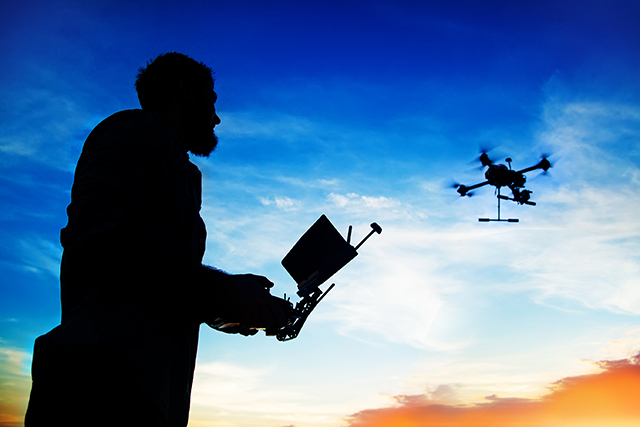
Image Credit: Shutterstock.com/MilaSupinskaya
Mo Rastgaar, an associate professor of mechanical engineering at Michigan Technological University, has commenced working on a drone catcher which will have the ability to follow and capture rogue drones that could be a threat to sporting events, air traffic, military installations, and even the White House.
In January 2015, the DJI Phantom quadcopter drone was unintentionally flown over the White House fence by a Washington, DC, hobbiest, who then had to crash it. Just two years before this incident, a prankster flew his drone towards Angela Merkel, the German prime minister who was participating in a rally.
Small drones have also been used as effective tools for hacking and smuggling, though they did not make national news. Mo Rastgaar while watching World Cup soccer learned that snipers were used to protect the spectators.
I thought, ‘If the threat is a drone, you really don’t want to shoot it down—it might contain explosives and blow up. What you want to do is catch it and get it out of there.
Mo Rastgaar, Associate Professor Michigan Tech
Drones can be deceptive and to bring them down a launcher shoots a big net fixed to a larger drone with the help of a string. The system can be supervised by a ground-based human pilot or operate autonomously or have a combination of both these options. On spotting a suspicious drone, the drone catcher begins to chase the suspected drone and shoots the net at it. The net can be used within 40 feet and it is so big that it can capture even the most maneuverable and fastest small drone.
“It gets really entangled,” Rastgaar said. “It’s not going anywhere.” The net is then brought down right below the drone catcher, which shifts the captured drone to a safe location. “What makes this unique is that the net is attached to our catcher, so you can retrieve the rogue drone or drop it in a designated, secure area, It’s like robotic falconry.
Mo Rastgaar, Associate Professor Michigan Tech
This project was also supported by recent mechanical engineering graduates Dean Keithly and Ruiyu Kang, PhD student Guilherme Ribeiro, and Evandro Ficanha, a research engineer working with Rastgaar.
A patent on this drone catcher system has been filed by Ficanha and Rastgaar, who also believe that this system can be used for foiling smugglers, spy drones and terrorists, and also supporting federal regulations
The FAA has just announced that drones must be registered, and we think the catcher could help enforce the law by catching unregistered drones.
Mo Rastgaar, Associate Professor Michigan Tech